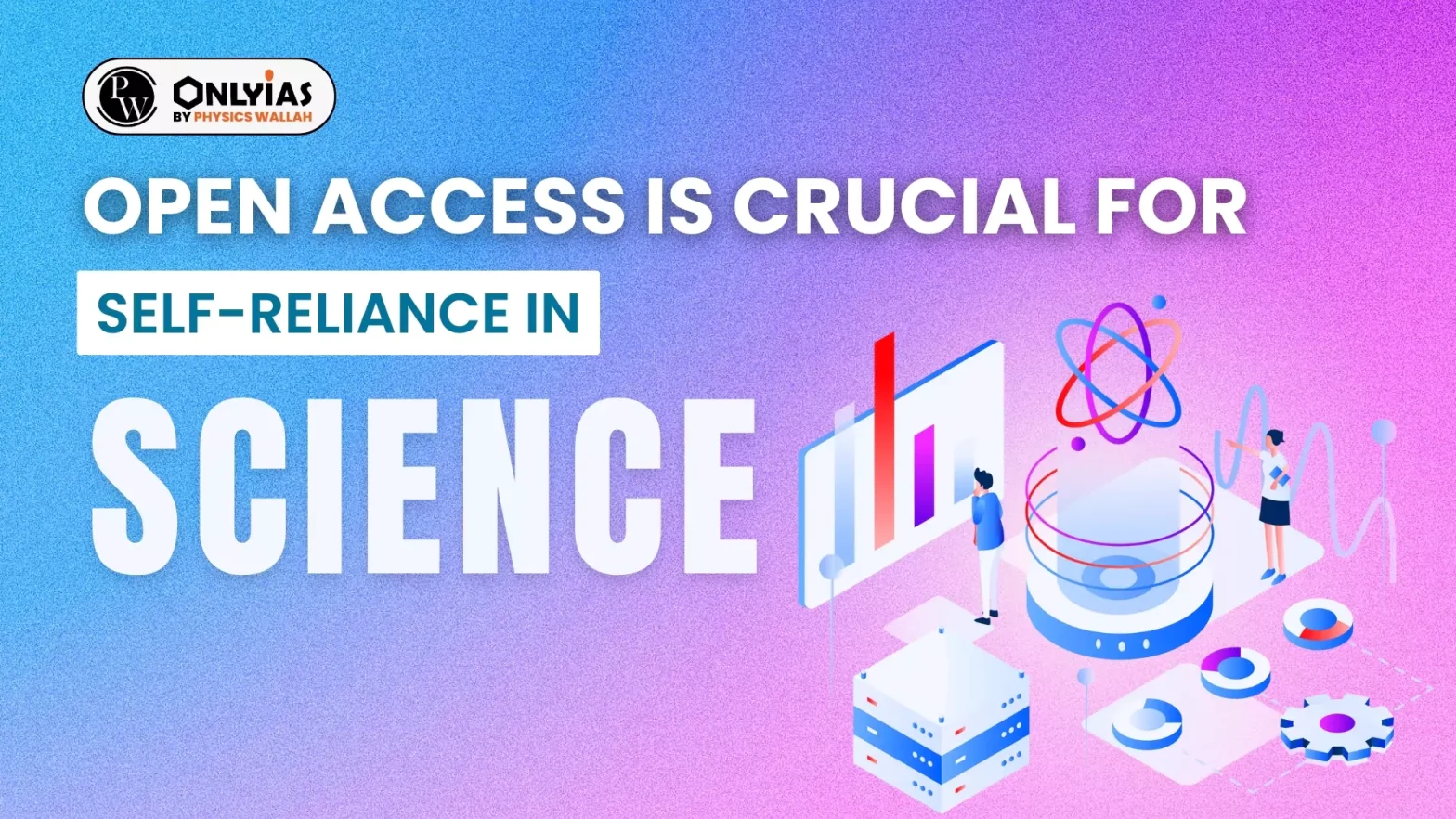A recent editorial in Nature lauded India’s ascent towards becoming a scientific juggernaut, paralleling its burgeoning economic clout.
Self-Reliance in Science
- Nature Index Findings: The Indian science ecosystem is indeed on an impressive trajectory, now ranking third globally in research output, and eleventh in quality, according to the Nature Index.
- Ease of Doing Science: However, ‘ease of doing science’ that can lead to great discoveries and innovation hinges on robust infrastructure and resources, a glaring shortfall in India’s research landscape.
- Rise in Universities: From 2014 to 2021, the number of universities in India rose from 760 to 1,113.
- Lack of Resources: Yet, many lack essential resources such as instrumental access and sophisticated labs, not to mention access to the literature that underpins research.
Enroll now for UPSC Online Course
- Science Techno Innovation: There has been a pioneering initiative, I-STEM, to bridge this gap by cataloguing all publicly funded research facilities nationwide and making them available to researchers based on need.
- This demand-supply mapping aims to democratise the availability of advanced research infrastructure.
- One Nation-One Subscription (ONOS): The call for ONOS proposes a centralised model of subscription to scientific journals, making them universally available to all publicly funded institutions.
- It is costly to get access to these commercial journals. It is estimated that institutions in India annually spend 1,500 crore to access journals and databases.
- But the fruits of this expenditure are reaped by only the top few institutes.
- ONOS negotiation by the government is currently underway with the five major commercial publishers who dominate the market.
The Optimal Solution?
But is One Nation-One Subscription the optimal solution for facilitating access to scientific literature?
- Genesis of One Nation-One Subscription: When it was conceptualised around 2019, a significant portion of scholarly articles was behind paywalls.
- Open Access: Now, a much larger fraction of articles is available via Open Access (OA), which means that articles are available freely for everyone online.
- An analysis of publications indexed in the Web of Science shows that the fraction of OA publications globally increased from 38% in 2018 to 50% in 2022.
- This shift raises a query about the necessity and efficiency of paying for content that is increasingly available for free. Currently, there is a strong push for OA by the U.S. and European Union.
- US’s Open Access Policy: The U.S. released its updated OA policy in 2023 that mandates immediate open accessibility of all publicly funded research articles by 2025.
- Mandatory Open Access: Similarly, major philanthropic funding sources such as the Wellcome Trust have mandated OA to the research they fund.
- Considering this trend, it is reasonable to argue that we should be paying less than before.
Major Challenges
- Oligopolistic Market: The oligopolistic academic publishing market, dominated by a handful of powerful publishers in the global north, allows these publishers to set stringent terms, making any negotiation on One Nation-One Subscription a challenge.
- The entrenched reputation and authority of these publishers also stymie any discussion of alternatives.
- Against General Procurement Process: In any other government procurement, the use of public funds is stringently regulated to ensure maximum cost efficiency and benefit. Why, then, should the procurement of academic journals be any different?
- If significant portions of research are already accessible without cost, the rationale for a unified, costly subscription becomes less compelling.
- Does Not Promote Access to Indian Research: It is also important to note that ONOS will not help make Indian research globally accessible; rather, it primarily facilitates access for Indian researchers to journals owned by big publishing oligarchs.
Enroll now for UPSC Online Classes
Conclusion
To foster scientific self-reliance, India must balance One Nation-One Subscription with the growing trend of Open Access, ensuring equitable resource distribution and global accessibility of Indian research.
![]() 30 May 2024
30 May 2024

